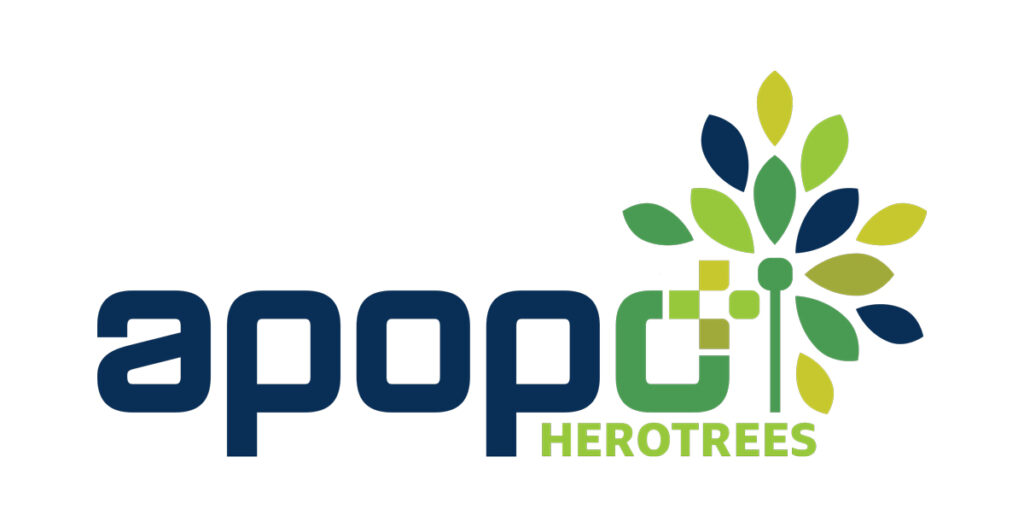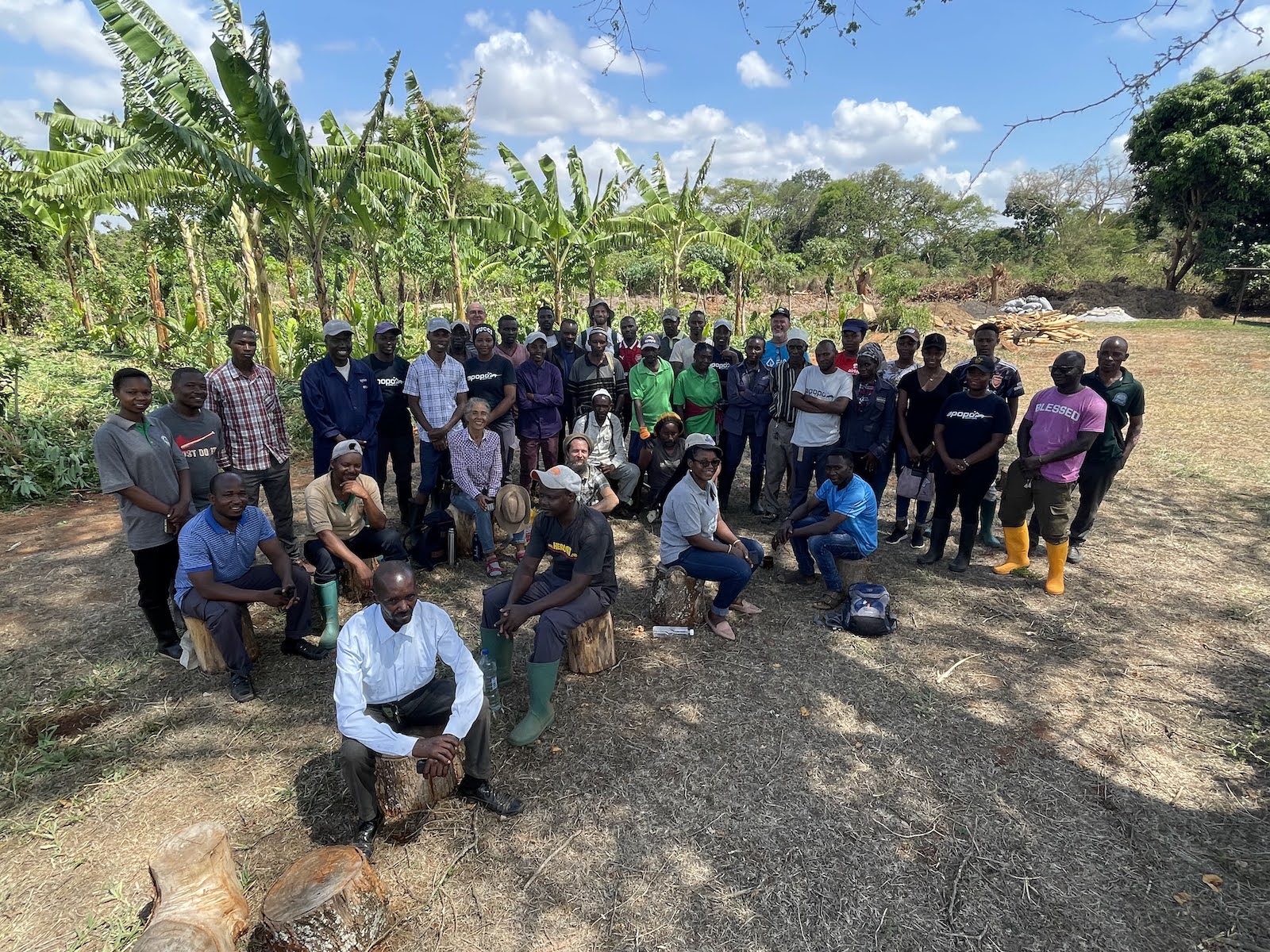From December 16-18, APOPO hosted a Synytropic Agroforestry Training course in Morogoro, at Sokoine University of Agriculture (SUA). The course was delivered in both English and Swahili to over 50 participants.
As part of APOPO’s HeroTREEs program, APOPO partnered with Roland van Reenen, a permaculture and Syntropic Farming expert, who delivered APOPO’s first training almost exactly a year ago. This three-day course dove into innovative agricultural methodology that combines reforestation with the abundant production of food that can be applied to nutrient poor or even barren landscapes.
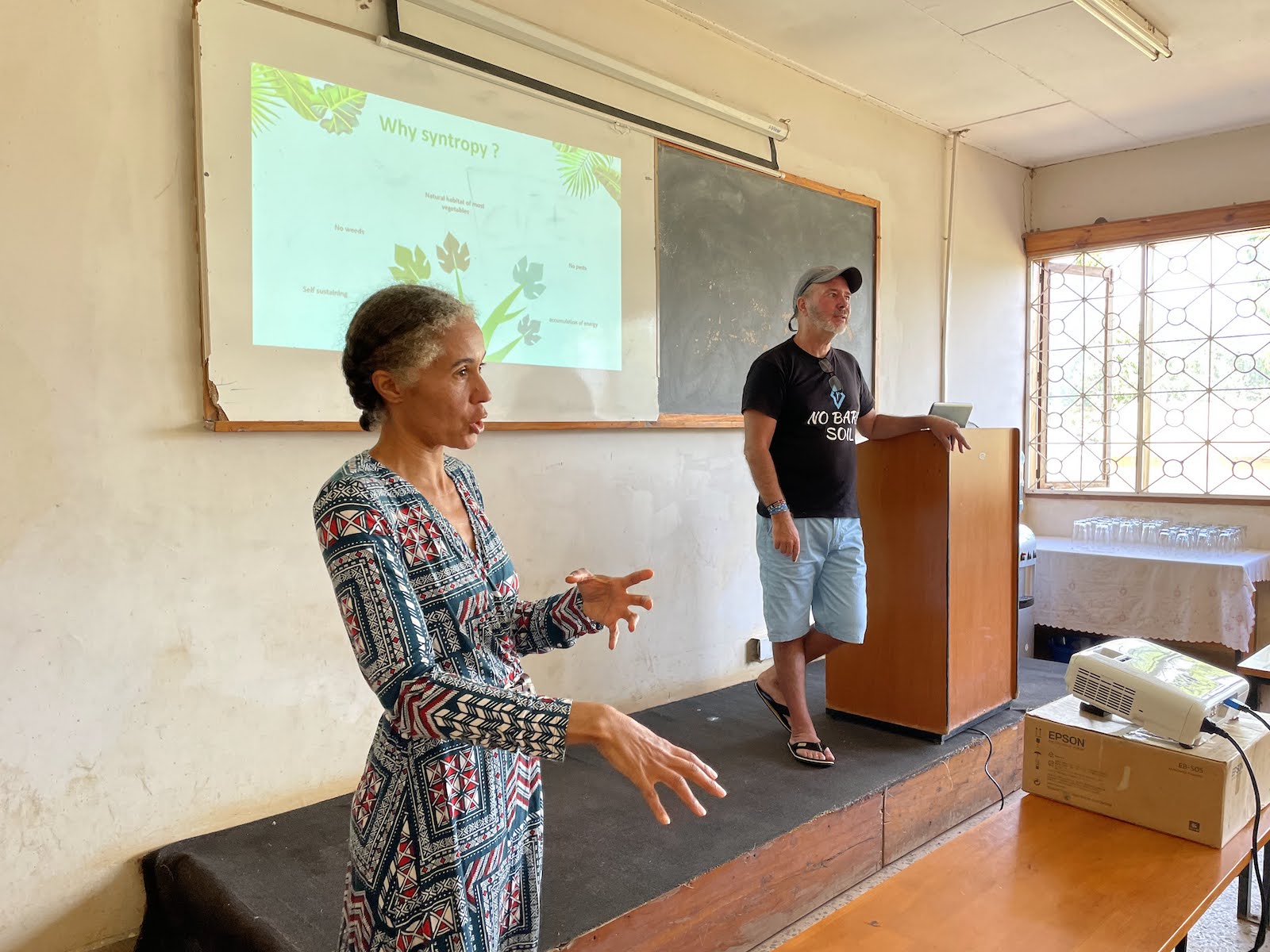
Our 50 course participants were a mix of APOPO staff, HeroTREEs farmers, students from Sokoine University of Agriculture and partners. The course, provided in both English and Kiswahili was a mix of the theory and science behind the concept of syntropic farming, and also the practice of building and managing a tropical food forest. Our course provider was our trusted partner and forest farmer Roland van Reenen with every step of the way translated by Nangula Heita Mwampamba to remove any language barriers.
Syntropic Agroforestry
Syntropic Agroforestry combines vegetable production in successional harvests with the growing of fruit,biomass, and timber trees and guarantees the highest yields per square meter while restoring ecosystems.
Syntropic Farming is a system that can be replicated anywhere, regardless of the location, land size, or soil type. It results in improved soil quality while also facilitating significant reductions in water and nutrient inputs.
The theory was centered around the five principles of soil coverage; stratification; maximizing photosynthesis; succession and management. During the practical we first observed and pruned APOPO’s pilot food forest established last year.
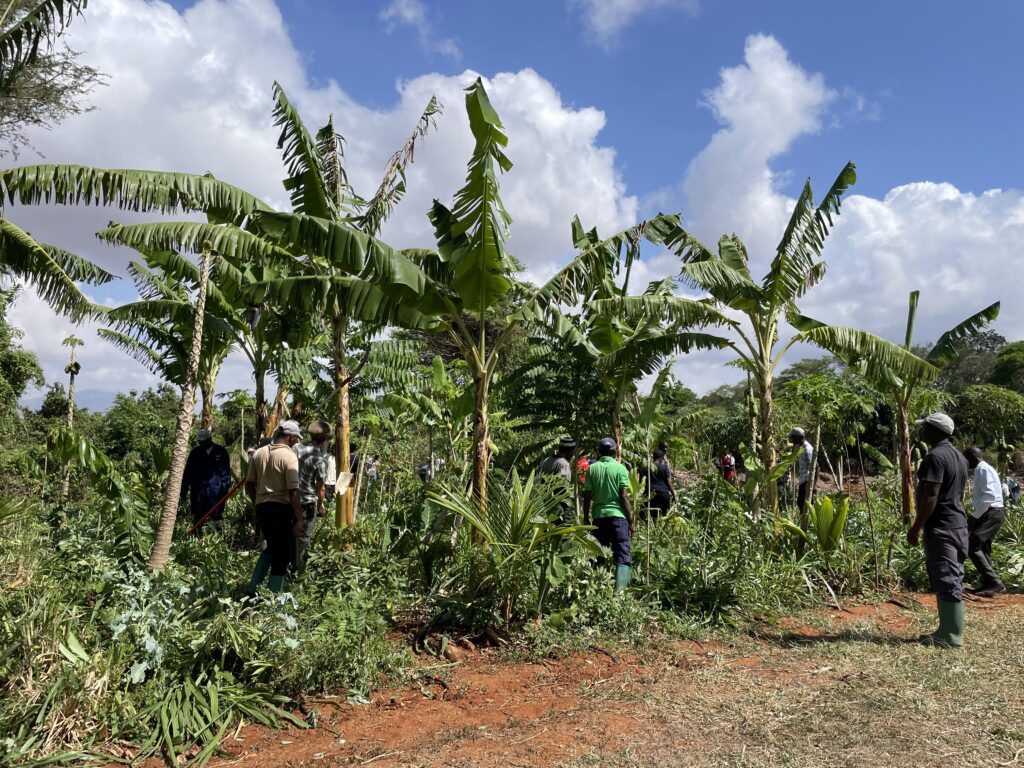
The team then extended this with a new phase of about 400 square meters in which they planted a total of 125 trees, of which most were fruit trees, but also included spices, indigenous hardwood trees, biomass trees, and lots of other roots and vegetables. Banana, avocado, soursop, cloves, coffee, cacao , citrus, jackfruit, cinnamon, papaya, pomegranate and palms. Additionally, cardamom, arrowroot, pineapple, ginger, turmeric, tomato, maize, kale, amaranth, bean, groundnut, okra, pepper, cucumber, pumpkin and watermelon to name a few.
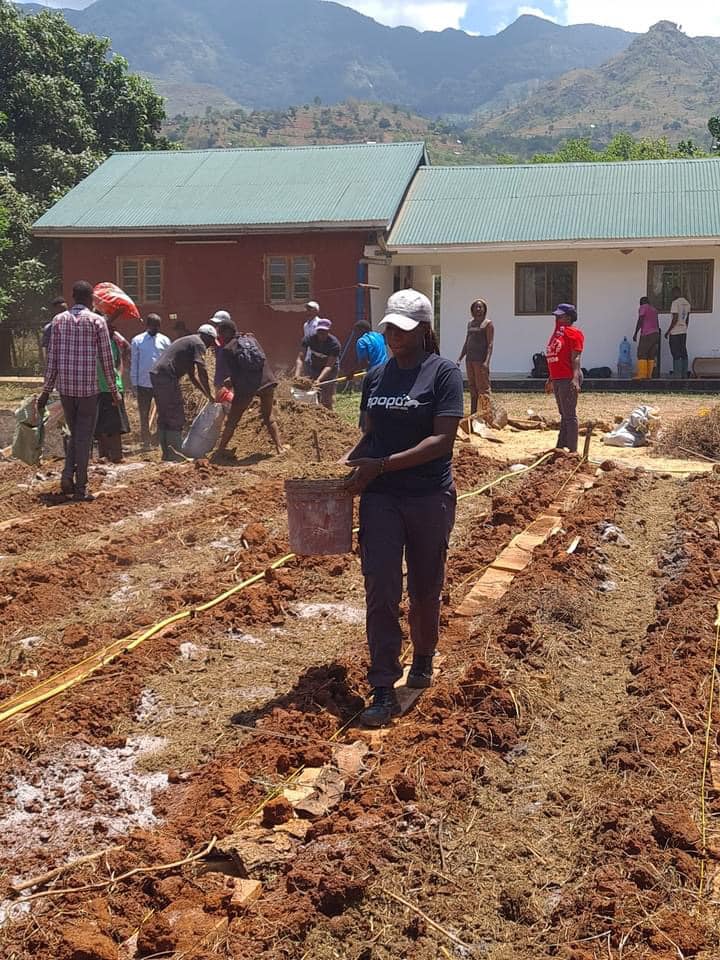
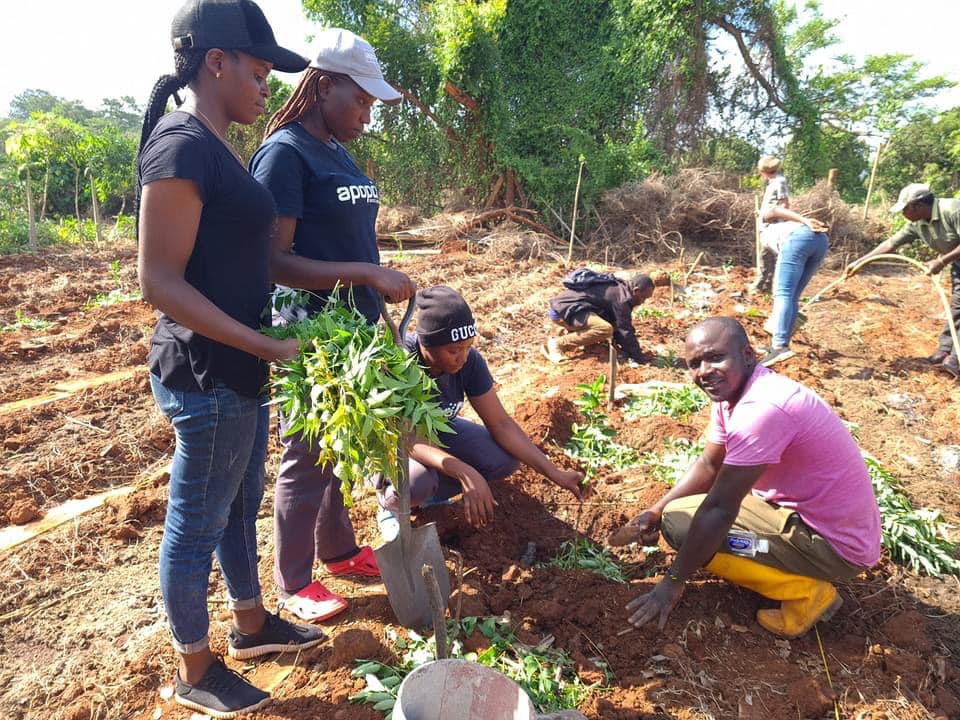
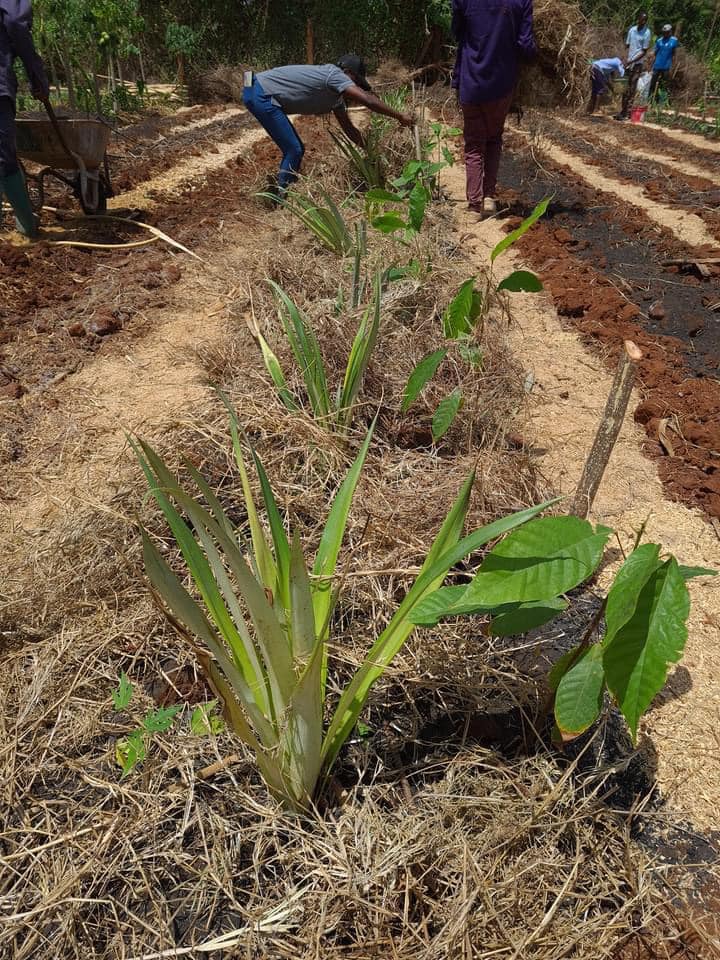
The entire team was very happy with the result and we found lots of enthusiasm and feedback for follow up activities: planting more food forests and HeroTREEs!
We hope this continued initiative will spark the interest in Syntropic Farming not just in Tanzania, but in the wider region; increasing food security, facilitating ecological restoration, and boosting our HeroTREEs program. We thank all the participants for their keen interest and hard work and hope to see the fruits of this training in their homes and farms as they apply their newly acquired knowledge.
HOW YOU CAN TAKE ACTION:
Support the HeroTREEs project by donating to APOPO on GlobalGiving.
Follow us on social media to get news on our projects.
Take personal action with Good Life Goals!
